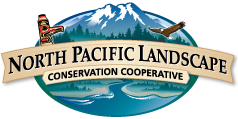Meeting Date: 12/11/2014
- 12/11/2014
Location: Webinar
Website: Website
Dec 11, 11:00-12:30 PM PACIFIC
Overview:
Increasingly, the knowledge and observations of indigenous peoples living across the world have been heralded as an essential and valid data source for understanding the changing social and physical environment. The Exchange for Local Observations and Knowledge of the Arctic (ELOKA, http://eloka-arctic.org) is a research and data management support service that specializes in working with Arctic communities and researchers in the collection, preservation, and use of local and traditional knowledge (LTK) and community-based monitoring (CBM) data and information. Through the co-production of information systems, knowledge holders, Indigenous community members, their representative organizations, and university researchers are making these resources available to a broad audience, including other Indigenous communities, scientists, students, and policymakers. ELOKA is part of a growing network of communities, researchers, and Indigenous organizations contributing to an improved understanding of the opportunities, challenges, and risks related to using contemporary and emerging information technologies for collecting, sharing, and using LTK and CBM information.
About the Speaker:
Dr. Colleen Strawhacker is a Council for Library and Information Research (CLIR) postdoctoral fellow and Research Scientist I with the National Snow and Ice Data Center (NSIDC) at the University of Colorado. As a part of her position at NSIDC, Dr. Strawhacker is working with the Exchange for Local Observations in the Arctic (ELOKA) and the Advanced Cooperative Arctic Data and Information Service (ACADIS) to increase NSIDC’s capacity to manage data from the social sciences in the Arctic. Prior to joining NSIDC, she received her Ph.D. in Anthropology with a focus in Archaeology at Arizona State University. Using archaeology and ecology as lenses to understand long-term human and environment interactions, Dr. Strawhacker combines methods and theories from both anthropology and environmental science to investigate how societies in the past responded to external social and environmental forces, such as climate change or colonizing groups. While much of her research during graduate school focused on how people adapted to warm-weather deserts, she has expanded her research on the recursive relationship between humans and the environment to the Arctic in collaboration with NSIDC and the North Atlantic Biocultural Organization.
About the Webinar Series
This monthly climate change webinar series is presented by the NPS Climate Change Response Program. The purpose of the series is to connect NPS employees, volunteers, and partners Service-wide with scientists and experts to share credible, up-to-date information about climate change in national parks and provide participants the opportunity to engage with them in discussion.
Presentations begin at 11 AM Pacific, on the second Thursday of the month, and last about 90 minutes. They are viewed by logging into GoToWebinar on-line at the time of the presentation. Audio is available via a call-in number (toll charges apply) or through your computer’s speakers (free, but may be limited by connection speed).
For more information about this webinar series contact:
A link to the webinar recording will automatically be sent to those who register. Presentations, recordings and related materials will be posted to Climate Change Sharepoint Site (must be on the NPS network) following the webinar.
